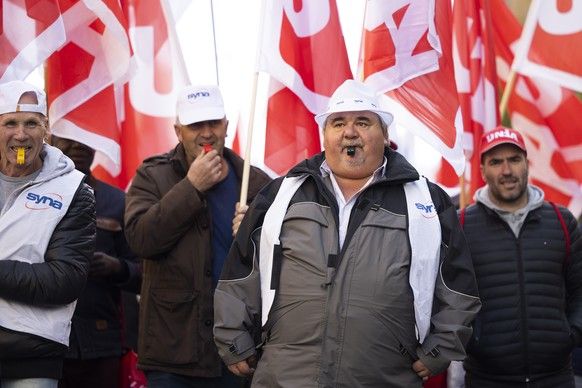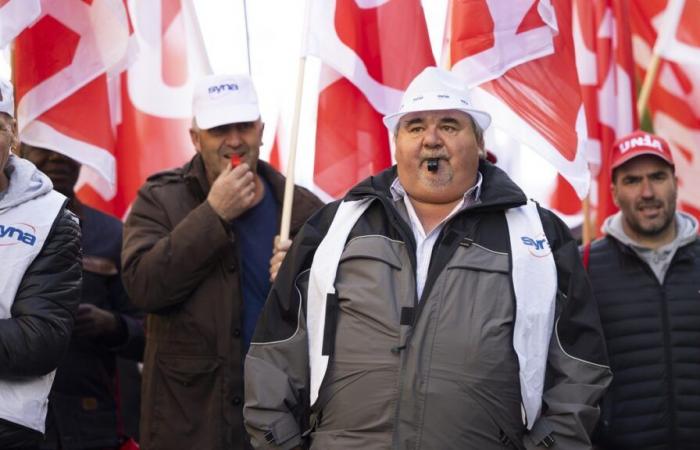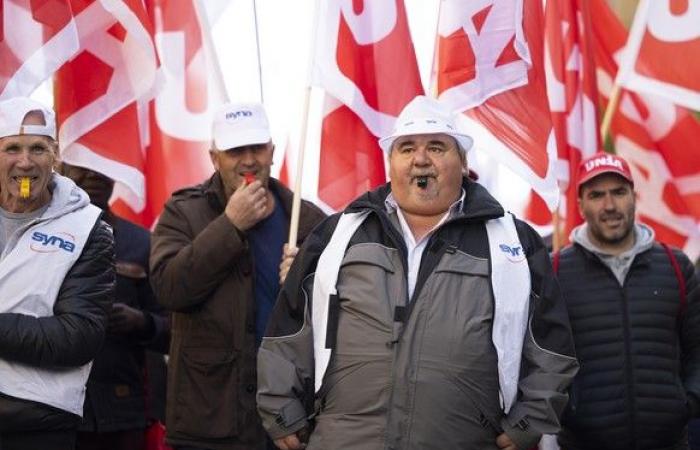For 20 years, Swiss unionized workers have been insufficiently protected against unfair dismissals, believes the Swiss Trade Union. The United Nations also criticizes Switzerland. Despite international pressure, the social partners are unable to agree.
In 2019, Parmelin’s Switzerland and Lukashenko’s Belarus were singled out by the ILO for violations of labor rights.Image: watson/imago
Reto Wattenhofer / ch media
The timing was not optimal. A few weeks before the International Labor Organization (ILO) celebrated its 100th anniversary, it placed Switzerland on a blacklist in May 2019. This brings together forty countries with the most worrying cases of labor rights violations. Switzerland found itself in a bad position: with Greece and Belarus, it was the only European country on the list.
The UN organization considers that Switzerland does not sufficiently protect its unionized workers against unfair dismissals. By committing to better working conditions or participating in strikes, these employees risk losing their jobs, she denounces, arguing that it is a way for companies to silence unwanted collaborators.
Concerned about its reputation, Switzerland reacts. The Minister of the Economy, Guy Parmelin, promises to improve protection against layoffs and announces that he has launched mediation with the social partners. The day after the opening of the centenary festivities, the ILO therefore removed Switzerland from the list of countries in violation.
A completely strategic gesture and assumed as such. Because these criticisms were not new for the Federal Council, which had been reprimanded several times in previous years for not having applied ILO standards. The Federal Council, however, specifies that it defends liberal labor legislation in Switzerland, affirming that it offers sufficient protection against unfair dismissals.
The largest UN employer in Geneva
The blacklisting was particularly bad timing. The ILO is the oldest organization affiliated to the United Nations. It has great importance for Switzerland, more particularly for Geneva, where it is based. It is also the largest UN employer in the city. The icing on the cake: that year, Switzerland coveted the presidency.
The Post Office had even issued a special stamp, representing the typical Swiss peace of work. It symbolized tripartism, peaceful cooperation between unions, employers and the state to shape the world of work. However, this achievement, so dear to Switzerland, seems to have failed on the issue of unfair dismissals.
Antonio Guterres, Secretary General of the United Nations, Ignazio Cassis, Federal Councilor, Sami Kanaan, then Mayor of Geneva, Antonio Hodgers, President of the Geneva Council of State and Guy Ryder, Director of the ILO.Image: KEYSTONE
Labor peace in difficulty
Twenty years ago, the Swiss Trade Union (USS) filed a complaint with the ILO over government inaction. According to the USS, the problem persists today, with supporting figures: 21 people were unfairly dismissed in 2024 because they were active in unions and defended rights provided for in collective labor agreements (CCT).
For example, there is this team leader who repeatedly reported serious security deficiencies in his company. Having interrupted his work because of unsafe scaffolding, he was fired the next day.

Going on strike in Switzerland, a danger for your job?Keystone
Or this woman working night shifts in the “clean room” of a medical technology company. She packaged products in sterile conditions but, despite wearing a protective suit, developed health problems. After demanding, with other employees, a bonus for this work, she was mobbed by her superiors, then fired.
Minimal protection, and then again
Under current law, a termination is considered unfair if it is caused in retaliation for legitimate union activity. The compensation provided is a maximum of six months’ salary. But in many cases, courts order employers to pay only two or three months’ wages, which unions denounce.
For the ILO, these measures are not sufficiently dissuasive for employers. A study by the University of Neuchâtel, commissioned by the State Secretariat for the Economy (Seco), concludes that Swiss law “offers only minimal protection against unfair dismissal” of worker representatives. Regarding the protection of union delegates, Switzerland does not respect its international obligations.
Law professors recommend increasing the duration of protection against unfair dismissals from six to twelve months. This proposal was already made by the Federal Council in 2010 as part of a revision of the Code of Obligations.
However, she had failed during the consultation procedure. Employers consider that the current law is sufficient, while unions consider these proposals insufficient. They demand that victims of unfair dismissals be compulsorily reinstated in their jobs.
These irreconcilable positions have not evolved. Mediation was launched in 2019, but suspended at the end of 2023. Last October, the stakeholders made another attempt. Guy Parmelin said the chances of an agreement were good. The mediator, Franz Steinegger, a veteran of federal politics, could find a solution.
Translated and adapted from German by Tanja Maeder








